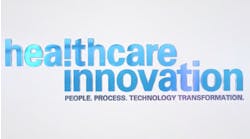I’m very much looking forward to participating in this year’s annual HIMSS Conference (sponsored by the Chicago-based Healthcare Information & Management Systems Society), to be held February 19-23 in Orlando, Florida. Like the swallows that return to San Juan Capistrano every year, the annual HIMSS Conference has been for years—decades even—a fixture in the landscape of the U.S. healthcare information technology sector—so much so that all the U.S.-based healthcare IT vendors incorporate the timing the HIMSS Conference each year into their annual marketing and sales cycles.
And of course, there are perennial facets of HIMSS that never change—the intense marketing, the dizzying exhibit floor, the hordes of attendees coursing through the convention center in the HIMSS city each year. But wait—might this year be different at HIMSS? It really could.
Let’s look at the evidence on the ground here. First of all, there is the broad trajectory that has solidified around policy and payment incentives in U.S. healthcare. As everyone who isn’t living in a cave knows, under pressure from the federal, state, and private purchasers and payers of healthcare, healthcare providers in the U.S. are being pushed—pretty quickly, really—into new value-based care delivery and payment arrangements, some of them through federal mandates, such as under the MACRA law (Medicare Access and CHIP Reauthorization Act) passed by the U.S. Congress in 2015, and which went into effect last month. For physicians, the MACRA requirements, which force them either to enroll in APMs (alternative payment mechanisms), or in the MIPS (Merit-based Incentive Payment System) program, are pushing them quickly into VBP. For hospitals, the internal health system reform provisions of the Affordable Care Act (ACA), including the avoidable-readmissions reduction program, the value-based purchasing program, and the voluntary accountable care organization (ACO) program and voluntary bundled payments program, are among the policy and payment elements in the law that look to survive any possible repeal of the ACA in Congress (something that itself is beginning to look less likely than it did even a few weeks ago).
Now, let’s absolutely concede that the Department of Health and Human Services, under the newly installed HHS Secretary Tom Price, until a few days ago a Republican congressman from Georgia—and before that, a practicing orthopedic surgeon in the Atlanta area—is likely to change considerably in terms of strategic and policy direction from what it was under the Obama administration. Price signaled as much when he was nominated for the HHS Secretary post by President Trump. That having been said, despite whatever policy shifts might occur, I have yet to speak to any healthcare industry experts who believe that the shift into value-based payment will be reversed over time. On the contrary, every expert I’ve spoken to believes that the core VBP concept will continue forward, and will animate the U.S. healthcare system going forward.
Still, the dramatic change in presidential administrations from a liberal Democratic administration to a conservative Republican one, will most certainly mean a shift in strategic policy direction at HHS, as well as at the agencies under its umbrella, including CMS (the Centers for Medicare & Medicaid Services) and ONC (the Office of the National Coordinator for Health IT). It will be particularly fascinating to see what Seema Verma does with CMS, at a moment in that agency’s history when its relations with providers could not be more significant for the future of U.S. healthcare overall. So on all that, stay tuned.
Here are two interesting things to watch out for at HIMSS17. The first is any possible policy hints from HHS, CMS, and ONC. Given that Dr. Price has just received Senate confirmation as HHS Secretary, and Ms. Verma, as of this precise moment, has not yet received that confirmation (though her confirmation could come at any moment now, and is likely before the commencement of HIMSS17), it is unlikely that federal healthcare officials will make major news at the HIMSS Conference this year, as they did at HIMSS14, HIMSS15, and HIMSS16. But one never knows…
More likely will be broad confirmation in the HIMSS17 zeitgeist of the U.S. healthcare industry’s forward evolution in terms of everything connected to value-based care delivery and payment, population health management, care management, and data-driven care delivery and operations. The HIMSS Conference—via presentations and discussions in educational sessions, through informal discussion and networking, and via healthcare IT vendor presentations and pitching on the exhibit floor—has always been a cornucopia of sharing of the very latest trends and case studies out in the industry. The leaders of patient care organizations nationwide are stepping up their game and advancing in terms of their ability to leverage data and information in order to improve patient care quality, operational efficiency, and cost management.
In that regard, we will once again be proud to present awards to the winning teams in our Healthcare Informatics Innovator Awards Program during the HIMSS Conference. We will honor the four winning teams and nine semi-finalist teams in our provider division in our program, at our Innovator Awards Reception, beginning at 4 PM on Tuesday, February 21, in our booth, Booth #2003. These teams, from patient care and other healthcare organizations across the U.S., are showing their peers from across the U.S. healthcare system how it can be done—how to break through into the new healthcare. We also will be delighted to honor the four winning companies and one runner-up company, in the vendor division of our Innovator Awards Program. Please make sure to join us in Booth #2003 at 4 PM local time, on the Tuesday of HIMSS! It is once again our honor and pleasure to recognize organizations that are innovating forward at this pivotal moment in U.S. healthcare.
So what is absolutely predictable is that the HIMSS Conference will once again offer a cornucopia of experiences and insights around innovations and changes in the present moment in healthcare and healthcare IT. And that is always quite exciting.
So we have some predictability, in terms of the evergreen opportunity to hear about innovations and changes in the healthcare system, in IT strategy and in technology, at the HIMSS Conference. And we also have some unpredictability, particularly on the federal policy level, that will be fascinating to see play out—more likely in the weeks and months after HIMSS, than at the conference itself (though once again, one never knows).
So yes, I think this year will be different, because this moment in healthcare is already unlike anything we’ve seen before, in terms of its fascinating combination of predictability and unpredictability. This will be my twenty-sixth annual HIMSS Conference, and honestly, in this unique moment in the evolution of U.S. healthcare and healthcare IT, I can tell you that things look different in certain ways than they did even six months ago, even as the U.S. healthcare system’s massive shift from being a fee-for-service-based system to a value-based one, has become clearer than ever.
So I can’t wait to engage in the presentations, meetings, formal discussions, hallway conversations, and other activities that are all integral to the HIMSS Conference experience. After 26 HIMSS Conferences, I still expect to encounter some new insights and experiences—and I know I will have some. Honestly, there has never been a moment in U.S. healthcare that has been both more challenging and more plainly exciting. I look forward to connecting with you down in Orlando—and let the annual whirlwind begin!


